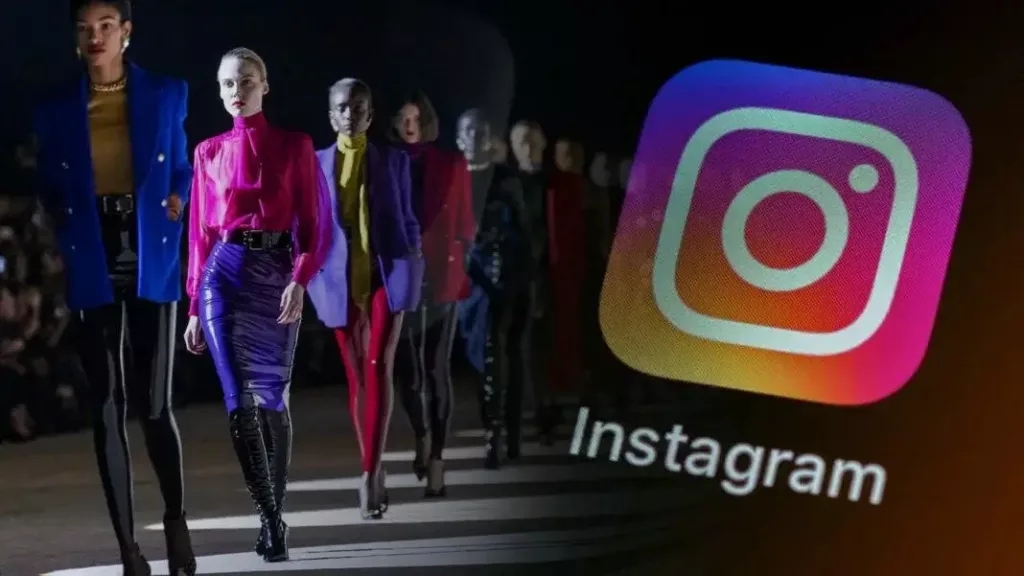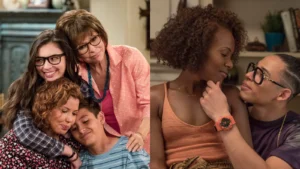
The Influence of Social Media on Celebrity Culture: From Instagram to TikTok
Introduction: The Changing Landscape of Celebrity Culture
In the age of social media, the dynamics of celebrity culture have shifted dramatically. Platforms like Instagram, TikTok, Twitter, and YouTube have fundamentally changed how celebrities interact with their fans and how they shape their public image. What once seemed like an exclusive, curated world for a select group of stars has evolved into a more accessible, transparent, and often more personal space where celebrities are expected to be relatable, authentic, and constantly engaged with their audience.
From influencers and reality TV stars to A-list movie stars and musicians, the rise of social media has democratized fame in ways that were unimaginable a few decades ago. But with this newfound accessibility comes a series of challenges, opportunities, and complexities that both stars and fans must navigate. In this article, we’ll explore how social media has reshaped celebrity interactions, fan culture, and the public perception of stars, as well as the broader implications for the entertainment industry.
1. The Rise of Social Media Platforms: A New Era for Celebrities
The introduction of social media platforms in the early 2000s marked the beginning of a major shift in how celebrities engage with the public. In the past, stars communicated with their fans through traditional media outlets, such as magazines, TV interviews, and radio shows. However, social media has allowed celebrities to bypass the gatekeepers of traditional media and take control of their own narrative.
Instagram: The Visual Showcase of Celebrity Life
Instagram, launched in 2010, quickly became one of the most influential platforms for celebrities, offering a space to share personal moments, behind-the-scenes footage, and curated photos that give fans an inside look into their lives. Celebrities like Kim Kardashian, Selena Gomez, and Dwayne “The Rock” Johnson have amassed millions of followers, turning Instagram into a key platform for building personal brands and connecting with fans.
Instagram’s appeal lies in its visual nature, allowing celebrities to share carefully crafted images, videos, and stories that convey their personality, style, and lifestyle. With Instagram’s features like Stories, Live Videos, and Reels, celebrities can engage with their followers in real-time, responding to comments, conducting polls, and offering exclusive content. This direct connection helps humanize celebrities, making them seem more relatable and accessible to their fanbase.
TikTok: The Rise of Viral Content and Authenticity
While Instagram may have set the stage for celebrity engagement, TikTok has taken the spotlight in recent years, especially among younger audiences. Launched in 2016, TikTok’s algorithm-driven platform encourages viral trends, dances, and challenges, giving celebrities a chance to engage with fans in a more spontaneous and less polished manner.
On TikTok, celebrities like Charli D’Amelio, Addison Rae, and even established stars like Will Smith have gained massive followings by participating in viral trends and challenges. TikTok’s appeal lies in its informal and often goofy nature, where celebrities can be more candid, funny, and authentic. This level of authenticity has allowed many stars to break away from their carefully constructed public images and connect with fans in a more genuine and unscripted way.
2. Shaping Public Perception: The Role of Social Media in Celebrity Branding
One of the most significant effects of social media on celebrity culture is the shift in how public perception is shaped. In the past, celebrities relied on publicists, media interviews, and traditional outlets to craft their public persona. Today, they have the power to shape their own image through carefully curated posts and personal branding efforts.
Building a Personal Brand
In the world of social media, celebrities are not just known for their talent or profession; they are also known for their personal lives, opinions, and values. Social media allows them to share aspects of their lives beyond their on-screen personas, such as their hobbies, family dynamics, and philanthropic efforts.
For instance, actors like Chris Hemsworth and Jennifer Lopez use Instagram to promote not just their movies or music but also their personal brands. Hemsworth shares posts about fitness and wellness, while Lopez uses her platform to highlight her fashion line, skincare products, and family life. Through this type of engagement, celebrities create a multi-faceted brand that extends beyond their work in entertainment.
The Power of Influencers and Brand Collaborations
As social media has blurred the lines between traditional celebrities and influencers, the concept of “influencer marketing” has grown into a billion-dollar industry. Brands increasingly look to social media stars—whether they’re A-list celebrities or micro-influencers—to promote their products, thanks to the direct, engaged audience these figures command.
Social media influencers are seen as more relatable and approachable than traditional celebrities, which makes them ideal partners for brands targeting niche audiences. Celebrities like Kylie Jenner and Rihanna have turned their social media presence into successful business ventures by launching beauty, fashion, and lifestyle brands, showing the true power of social media as an economic tool.
3. Fan Culture: A More Interactive and Personalized Experience
The relationship between celebrities and their fans has become more interactive, thanks to social media. Platforms like Instagram, Twitter, and TikTok allow fans to engage with their favorite stars in ways that weren’t possible before. Celebrities no longer exist in an exclusive bubble; instead, they’re engaging directly with their followers, answering questions, posting personal stories, and offering a behind-the-scenes look into their lives.
Direct Interaction and Fan Engagement
Before social media, fans often had to rely on media outlets and paparazzi to get glimpses of their favorite celebrities. Now, with a simple tweet, Instagram comment, or TikTok video, fans can interact with their idols in real time. Many celebrities take time to engage with fans by responding to comments, sharing fan art, or even hosting Q&A sessions.
This level of engagement has led to a more intimate relationship between stars and their followers, allowing fans to feel like they have a personal connection with the celebrity. This phenomenon has also given rise to the idea of “fandoms,” where groups of fans come together online to support their favorite stars, share content, and connect with other like-minded individuals.
The Impact of Fan-driven Content
One of the more fascinating aspects of social media’s influence on celebrity culture is how fans have started to play an active role in shaping their idols’ public images. Through fan-driven content—like fan art, memes, and TikTok videos—fans have a direct hand in influencing how a celebrity is perceived.
For instance, Harry Styles’ dedicated fanbase has created a vast array of fan content that celebrates his music, fashion, and activism. Similarly, Taylor Swift’s fans regularly engage in online discourse, defending her from criticism and helping to shape her narrative on platforms like Twitter. This level of engagement has empowered fans to become more than passive observers; they are now key players in the celebrity ecosystem.
4. The Dark Side of Social Media: Cyberbullying and Public Scrutiny
While social media has enabled celebrities to have closer, more personal connections with their fans, it has also exposed them to unprecedented levels of scrutiny and negativity. Public figures are under constant surveillance, and even minor missteps can quickly spiral into viral scandals.
The Pressure to Be Perfect
The constant pressure to maintain a perfect image online has taken a toll on many celebrities. With every post, tweet, and video being scrutinized, stars are expected to present an idealized version of their lives. This has led to issues surrounding mental health, body image, and online harassment.
For instance, social media platforms have been criticized for fueling unrealistic beauty standards, which often impact celebrities’ self-esteem. Even the smallest imperfections or offhand comments can result in backlash from fans and critics, leading some stars to take breaks from social media altogether.
Cancel Culture and Public Outrage
Social media has also given rise to “cancel culture,” a phenomenon where celebrities can be publicly shamed and ostracized for controversial opinions or actions. The viral nature of social media means that a single tweet or video can spark outrage and result in swift consequences, often leading to lost brand deals, public apologies, and a damaged reputation.
While cancel culture has sparked important conversations about accountability, it has also raised concerns about the consequences of public shaming and the difficulty of rehabilitation for celebrities who make mistakes.
5. The Future of Celebrity Culture in a Digital Age
As social media continues to evolve, it’s clear that the future of celebrity culture will be shaped by these platforms. Celebrities will continue to find innovative ways to engage with their fans, whether through live-streamed events, exclusive content, or new social media features. The line between celebrities and influencers will continue to blur, as more stars use platforms like TikTok to engage with younger audiences in new and creative ways.
The question remains: Will social media ever fully replace traditional media outlets in shaping public perception? As social media’s influence grows, the role of traditional PR agencies, film studios, and network executives may continue to shift, allowing celebrities more control over their public image and career.
Conclusion: A Double-Edged Sword
Social media has fundamentally changed the world of celebrity culture, offering both opportunities and challenges. On the one hand, it has allowed celebrities to build stronger relationships with their fans, monetize their brands, and engage with audiences in real time. On the other hand, it has opened them up to constant scrutiny, cyberbullying, and the pressure to maintain a curated, perfect image.
As social media continues to evolve, celebrities will continue to navigate this ever-changing landscape, adapting their strategies to connect with fans while managing the complexities of online fame. For better or worse, social media has irrevocably reshaped the celebrity ecosystem—and there’s no turning back.
External Links:
- Instagram’s Impact on Celebrities
- TikTok and the Rise of Influencers
- Celebrity Branding and Social Media
Image credit – iiad.edu.in


